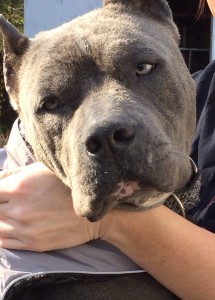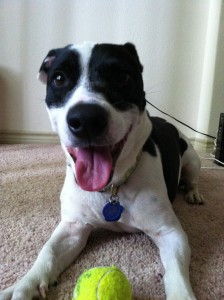 Day TWENTY-21 Day Positive Training Kickstart Challenge
Day TWENTY-21 Day Positive Training Kickstart Challenge
The myth of the “alpha” is everywhere & unfortunately, there are millions of resources from websites, to books, to veterinarians, to trainers who still tout this outdated, incorrect, and unscientific information.
In the 40’s a researcher named Rudolph Schenkel, incorrectly concluded that wolves in a pack fight to gain dominance & that the winner is the alpha wolf.
Somehow after that people decided that successful relationships with dogs would need to parallel the relationships thought to occur within wolf packs & thus would need to maintain a “pack” hierarchy by way of dominance.
This was the popular belief for decades & as such dog training methods & techniques developed based on the the belief in the need to be “dominant” in order to maintain the “alpha” status.
About 20 years later, a man named David Mech published his highly influential book “The Wolf, Ecology and Behaviour of an Endangered Species” & cited Schenkel’s work and findings.
In the 1990’s Mech spent years living with and studying wolves in the wild on & observed the behavior and social structure of non-captive wolves that changed his way of thinking. Instead of witnessing dominant/subordinate pack hierarchies, he found them to be comprised of leader/follower relationships. Mech determined that the existing theory and literature (including his own book ‘The Wolf’) on the alpha status and hierarchy of wolf packs was misleading and he decided to right this wrong. In 1999, Mech published an article entitled, “”Alpha Status, Dominance and Division of Labor in Wolf Packs” to correct this misinformation.
Although it has now been over 10 years since the alpha/dominance wolf pack research & associated theories were found to be flawed & invalid, there are still folks today who continue to promoted this incorrect information.
ACTION: Get a cup of coffee, sit back, relax, & take a good read of this thorough explanation of how things went wrong, got fixed, but how some folks still are working with old info. Educate yourself so that YOU know the right information: http://www.wolf.org/wolves/news/pdf/winter2008.pdf
 So, next steps?
So, next steps?
